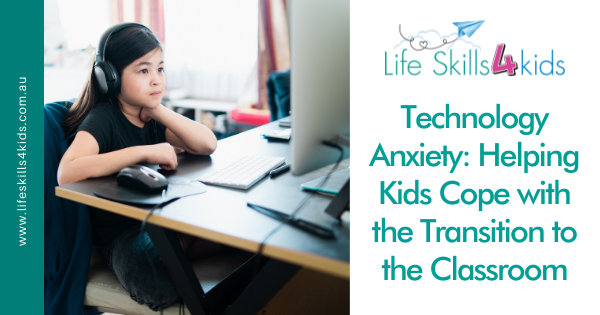
by Debbie Hopper | Jan 13, 2022 | Anxiety, Blog, Occupational Therapy, Training and Education
Hidden anxiety among children is surprisingly high, undoubtedly because it often masquerades as something else. And without understanding what they’re dealing with, the adults in a child’s life are often not equipped to handle it in the best way for the child. Anxiety...

by Debbie Hopper | Nov 25, 2021 | Anxiety, Back to School, Blog, Child Development, Occupational Therapy, Sensory Processing in the Classroom
Technology anxiety is real amongst children and young people who face returning to the classroom after time spent in home learning during the lockdowns. During this time, most children have been learning online or through an increased amount of screen time rather than...

by Debbie Hopper | Nov 17, 2021 | Back to School, Blog, Encouragement, Occupational Therapy, Training and Education
School closures have been frustrating and tedious for parents during the Covid lockdowns. They can happen with very little warning, creating family chaos, problems with work and other normal life activities, and causing anxiety for kids who don’t know what to expect....

by Debbie Hopper | Oct 27, 2021 | Blog, Occupational Therapy
Growing a sustainable therapy business is a dream for some who would prefer going solo rather than work in a public health setting or a large team. But it can be a daunting thought to set out alone and be the only person responsible for the success or failure of your...

by Debbie Hopper | Oct 19, 2021 | Anxiety, Back to School, Blog, Child Behaviour, Occupational Therapy
School anxiety after home learning is to be expected. For many students, it has been a long time since they were last in a classroom, and with the uncertainty of lockdowns and the world in general, many children and young people have anxiety about returning to the...

by Debbie Hopper | Mar 26, 2019 | Anxiety, Blog, Occupational Therapy
Trichotillomania has always been a secretive thing, leading health professionals to believe for many years that it was extremely rare. But in recent years, researchers have discovered that it’s actually a common problem that affects up to 2% of the...







